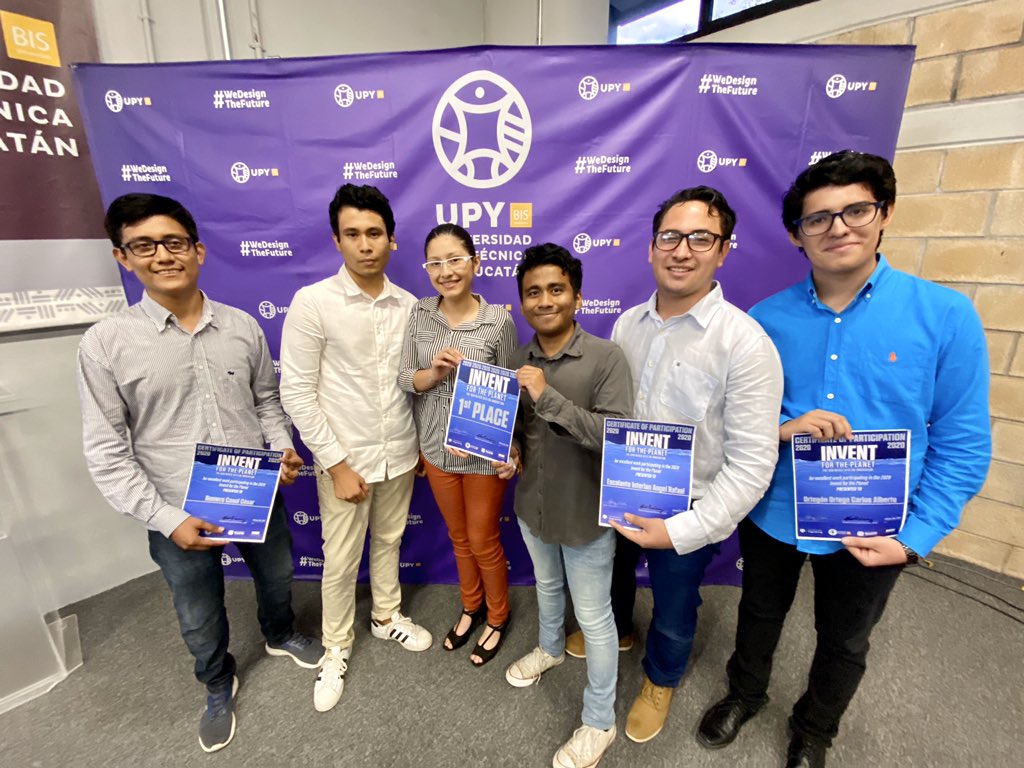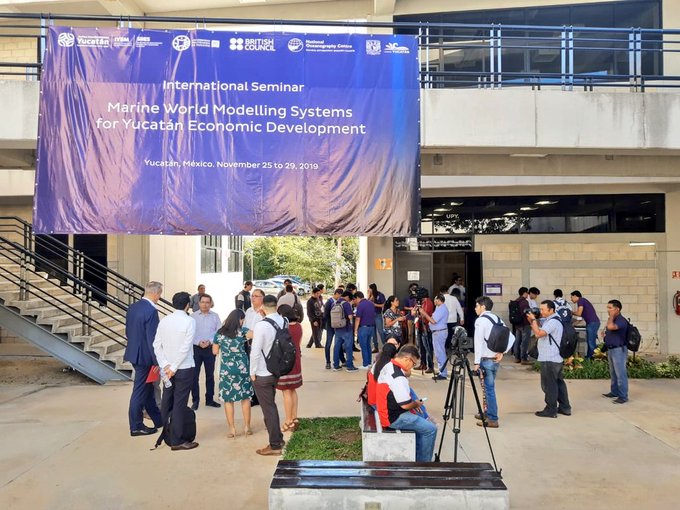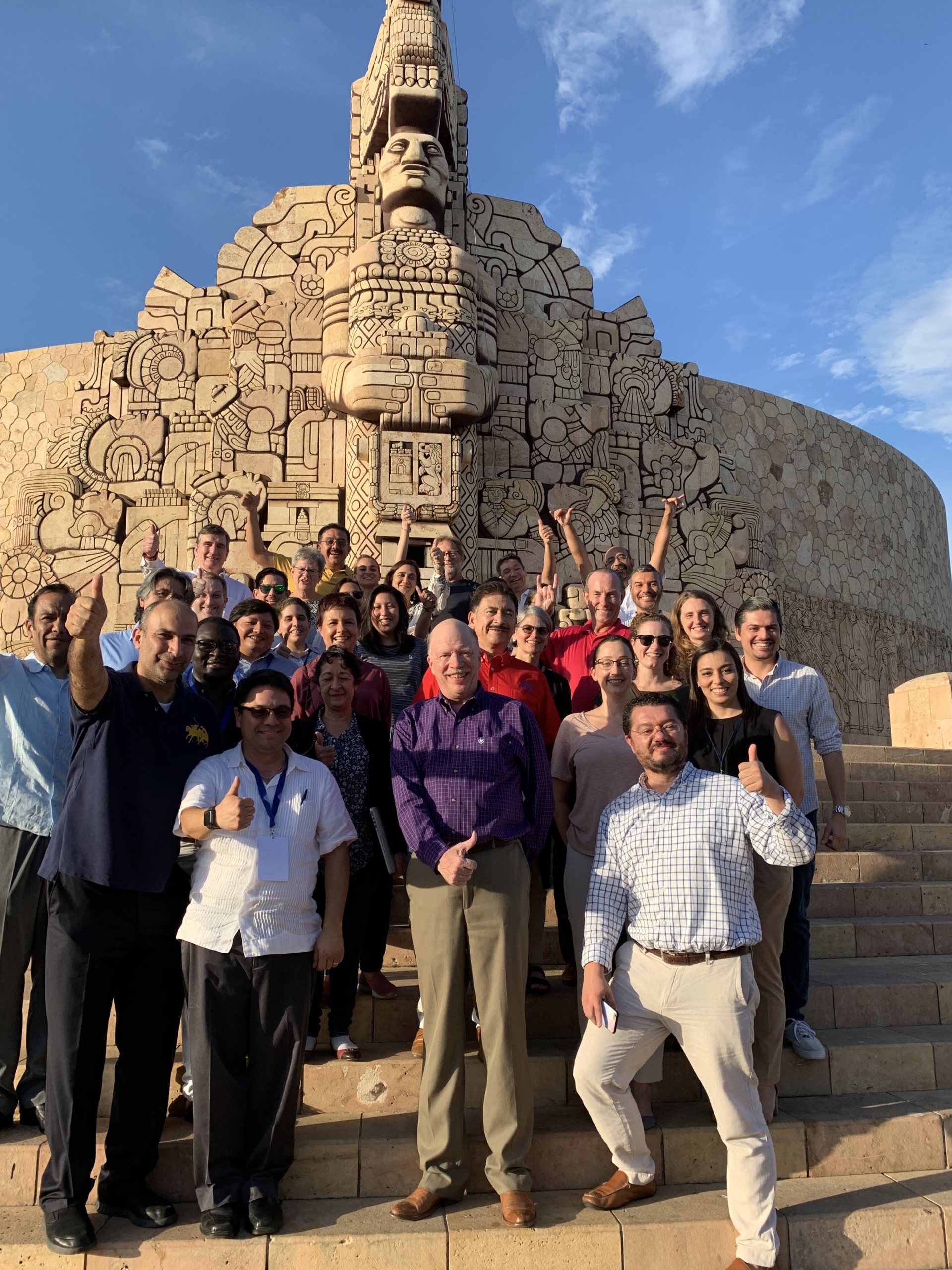Merida, Yucatan, Mexico – The Climate Change Workshop consisted on the gathering of experts with different backgrounds to provide valuable contributions to the Climate Change debate in the Yucatan Peninsula.
The main objectives of the workshop consisted of:
a) The identification of the variables and processes that can impact the Yucatan Peninsula due to global climate change that can be used to make a comprehensive Risk Assessment model.
b) Define the problem associated to the risk assessment (social, economic, and environmental) of the peninsula due to climate change.
c) Define a team of experts that can integrate an interdisciplinary risk model to assess the interrelation between climate change and the local hydrological cycle and the regional potential to generate renewable energy.
d) Discuss the integration of a proposal that can generate risk scenarios in the present and future, and can serve as a regional source of evidence for the creation of social, economic, and environmental policies.
Challenges and opportunities:
In the Yucatan peninsula various efforts have been carried out to study and comprehend it´s regional hydrological cycle. However, la complex geological characteristics of the continental platform of Yucatan, and the complexity of the human and natural interactions with the surrounding hydrosphere, has generated a limited understanding of the social, economic, and environmental potential impacts of climate change.
On the other hand, the studies of the geological characteristics of the Yucatan peninsula, both superficial and profound, show that there is a low probability of the presence of non-renewable fuel sources (fossil, nuclear, etc.). Such geological characteristics have created a regional energetic dependency on hydrocarbon (that is petroleum and gas) to a very high cost (economic and environmental). Consequently, exists an implicit challenge to investigate the renewable energy sources (solar, wind, oceanic) in the region. Nonetheless, the climate change can force the redefinition of the current estimates about the optimum location of farms of renewable energy sources. As well as, the potential development of a ¨green industrial region¨ through the exploration of sequestration or storage of carbon can give rise to opportunities of industrial development.
The relevance of having an integral rapprochement of risk to comprehend best the challenges and opportunities that the climate change represents to the Yucatan peninsula, is a priority to the social, economic, and environmental actors of Yucatan and Mexico, which creates an opportunity of joint collaboration between different institutions. The Department of Education of the Yucatan State Goverment has organized this workshop with the purpose of preparing key strategies that can lead to a regional initiative of research about climate change for a few-years period.
Topics concerning natural conditions, engineering solutions, local infrastructure, and social, cultural and economic concerns were discussed during the workshop. The delegation visiting from Texas A&M University started the round of presentations talking about the state of the art on research related to the Global Climate Change and their perception of the potential variables related to the topic. The Flow and Transport Program was another topic approached, which explains the various techniques and technologies used to assess hydrocarbon reservoir properties that can be used for the geological modeling of the aquifers in the Yucatan Peninsula.
The Mexican delegation was comprised by expert representatives of different organizations and academic institutions who provided their input regarding the existent conditions of the Yucatan Peninsula as the elements at risk, threats, consequences, and possible opportunities.
Among the elements at risk, concerns are mentioned about the ocean acidification, sea temperature rise and increase of CO2. The conditions also concern about some treats in the peninsula such the constant sea level rise in 2.5mm per year, coasts erosion, and flows considering that Merida City is only 8 meters above sea level. The experts’ collaboration at the workshop allowed to identify several variables that can be used to draw a preliminary model to assess the effect of the climate change on the Yucatan Peninsula. The method to design this model was a Bayesian Network capable of identifying the cause-effect relationship of the proposed variables that ultimately will result in Environmental, Economic and Social Risk scenarios. This risk assessment approach was designed by identifying the hazard conditions and the elements at risk discussed during the workshop. The first draft of the Bayesian Network proposed can be seen on the following figure:

As a result of the workshop, a list of commitments was established which involved all collaborative parts:
- Make data available
- Geologic
- Geophysical data – all methods available
- Digital Imagery
- Social – demographics
- Find additional founds
- Research Sponsorships
- Invite other collaborators
List of Foreign Participant Institutions:
- Zenon Medina-Cetina, TAMU: Yucatan Initiative Coordinator.
- Anita Rapp, TAMU: Atmospheric Sciences: Global Hydrological Cycle and Climate Change
- Roger Norton, TAMU: Borlaug Institute for Agriculture and Agricultural Economy, Water Managemente Politics, Rural Poverty Reduction, and Agricultural Competitiveness.
- Patricia Varela, TAMU: Stochastic Geomechanics Laboratoty SGL, Risk Modeling SIG
- Miriam Olivares, TAMU: Geography Center and GEOSAT. SIG y Soil Development
- Steve Whisenant, TAMU: Ecosystem Sciences and Management. Ecological Restoration and International Development.
- Hermann Philipp Tribukait-Vasconcelos, Energetic Sustaintability Fund of Mexico in the United States.
- Dan McConnell, Fugro GeoConsulting: Director BDT for the Americas (Big Projects and Initiatives).
- Kevin Smith, Fugro Consulting: Reference and Infrastructure Development for Climate Change in Coastal Areas.
- George Moridis, Lawrence Livermore Laboratory Berkeley: Geo-hydrologic Model and Carbon Isolation Model
- Jaime Urrutia-Fucugauchi, UNAM: Geophysics Institute. Geology and Geophysics.
Local Institutions summoned:
- Mexican Spacial Agency
- Scientific Research Center of Yucatan
- Center of Research and Advanced Studies of the National Polytechnic Institute, Merida Unit
- Department of Urban and Environmental Development
- Department of Rural Development of the Yucatan State Goverment
- Engineering Faculty, Autonomous University of Yucatan (UADY)
- Veterinary Medicine and Zootechnics Faculty, UADY
- Merida Marista University
- Grupo Plenum
- Employers Coalition against Climate Change
- iPlansa











Follow Us